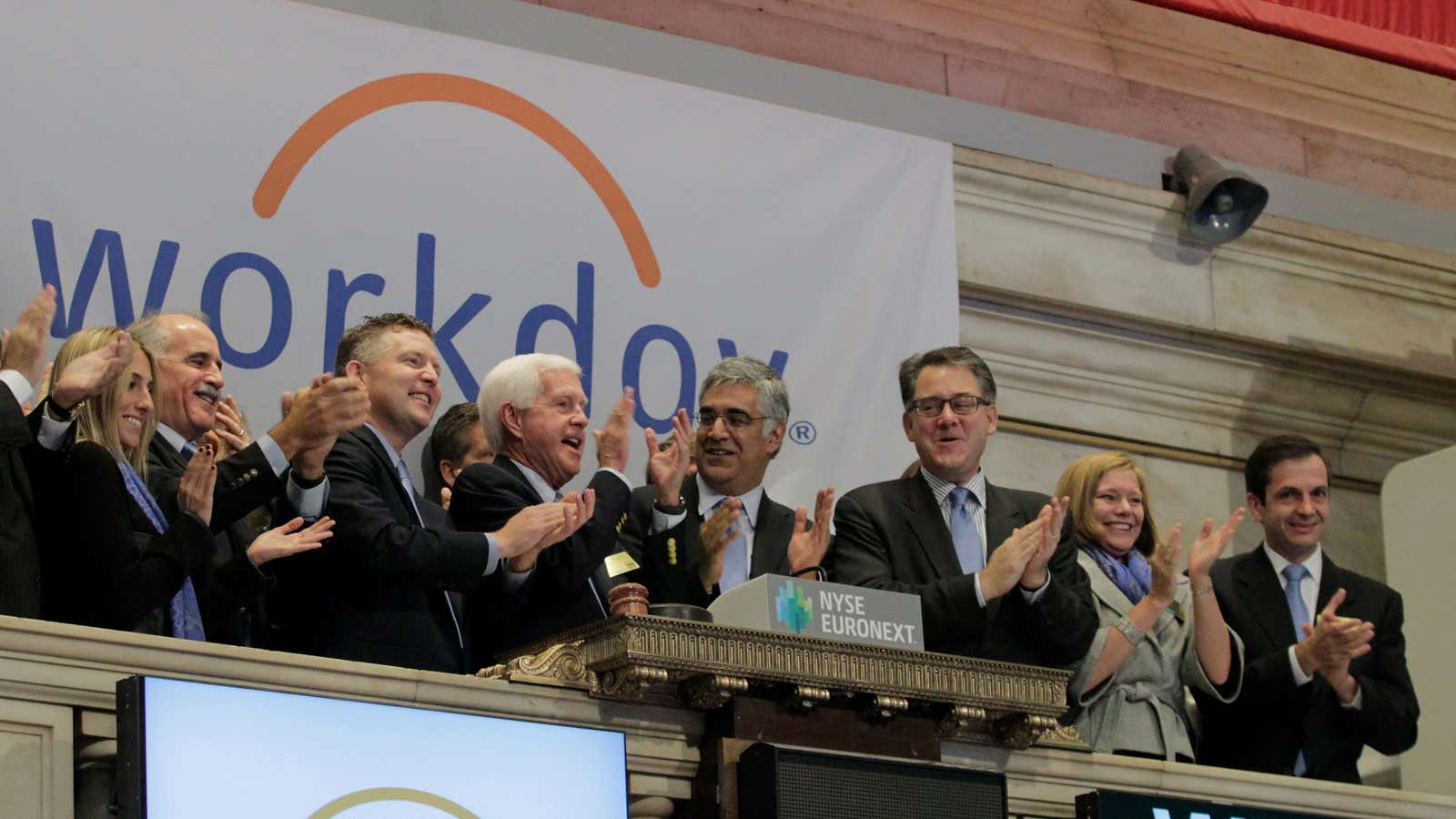Once a week, the employees of the HR software company Workday get a two-question survey.
On #FeedbackFriday, as Workday’s senior vice president and “people and performance evangelist” Greg Pryor calls it, employees might be asked first about their relationship with their manager, and then to reflect on their own mental and physical health. The specific questions vary week to week. Over time, the surveys create a robust data set from Workday’s 9,600-plus employees, a data set that can be analyzed based on location, gender, department, and a number of other factors.
Workday has found, for example, that workers in its San Francisco office have a better employee experience than those 40 miles east in the company’s Pleasanton, California, headquarters. Meanwhile, female employees in Victoria, Canada, consistently rate their culture higher than women in other Workday offices do.
According to Pryor, who as the head of talent at a people company has perhaps one of the more meta jobs in the world, the survey results have led to real change.
After Pryor’s team noticed millennial employees reported they didn’t have visibility into their own career trajectories at the company, Workday launched a series of career development workshops that let workers take time out of their weeks to holistically think through their careers.
The questions used in the weekly surveys are backed by research from the Great Place to Work Institute, an organization that studies and consults on office culture. ”The path to having a customer forever runs through your employees,” says Michael Bush, the CEO of the Great Places to Work Institute. “The guy who runs my barbershop surveys his employees… I think every company should.” (Ironically, five years ago, the Great Place to Work Institute was found to not actually be that great of a place to work—at least not versus other companies it measured using a new tool to gauge workplaces based on employee feedback. Bush joined as CEO three years ago.)
Workday, on the other hand, consistently sits atop “best places to work” lists. Pryor credits “a culture of continuous feedback” and “a responsiveness to different generational expectations” as primary drivers of Workday’s popularity among its staff. “Happy employees mean happy customers,” Pryor says. “That’s why it’s so important to have a pulse of what’s going on.”
